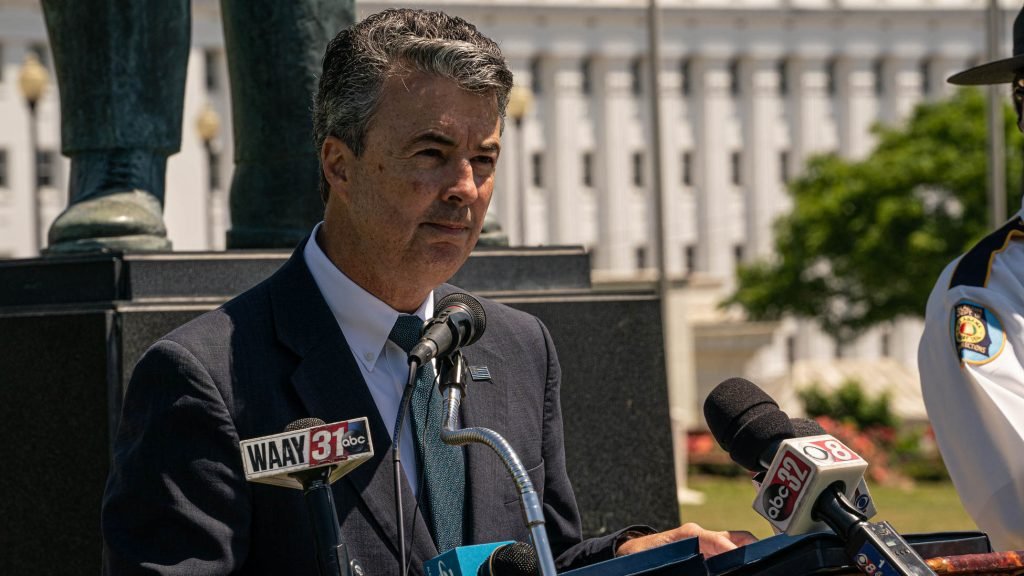Attorney General Steve Marshall last week issued an opinion to the Alabama Department of Public Libraries on whether it has the authority to require libraries to carry “age-inappropriate materials.”
In his opinion, Marshall wrote that while state agencies cannot directly control the activities of local libraries, state aid can be made conditional on the adoption of certain policies, which effectively require most libraries to comply with. They said they could be forced to do so or face a reduction that could prevent them from purchasing the materials altogether.
“While the Alabama Public Library Service does not have direct authority to impose mandatory guidelines regarding age-inappropriate materials on local public libraries, it may condition funding on implementation of such guidelines and compliance with the guidelines. may revoke or suspend the accreditation of any local public library or district library that refuses to do so,” Marshall wrote in the opinion.
The APLS Board of Directors asked Marshall more than three months ago after the group Clean Up Alabama began pressuring the board to take steps to remove “inappropriate materials” from the children and youth section of the library. I asked for opinions.
Angie Hayden, a spokeswoman for Read Freely Alabama, said the comments come as no surprise to library officials.
”But until now APLS standards have been ideologically neutral, and Governor (Kay) Ivey's proposal would change that…
“This is nothing short of an anti-library, ideological attack on state library funding. If they had their way, underfunded libraries, especially those in black belt counties, would be forced to adopt discriminatory policies that sequester content deemed inappropriate by groups in power, or close their doors. It will be forced. This would be devastating for communities that rely most on libraries as their sole source of Wi-Fi, computers, and support services such as career development and veterans assistance. ”
Ivey asked the APLS board in November to change the governing code to require libraries to develop such a policy, but the code does not provide a template for what the policy should be.
A 90-day public comment period on the proposed changes will begin at the end of January and continue until a public hearing on April 30 for final public comment.
















